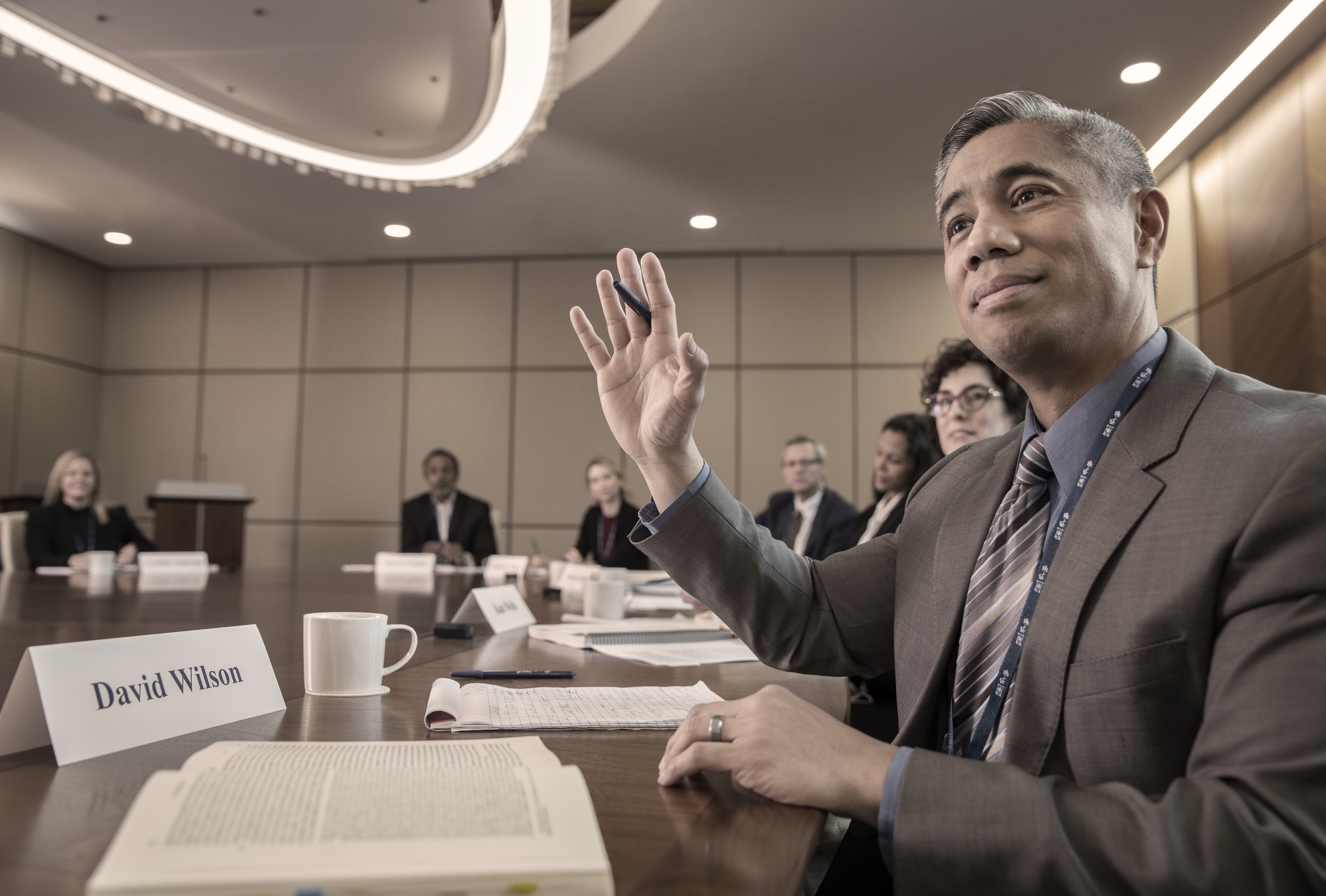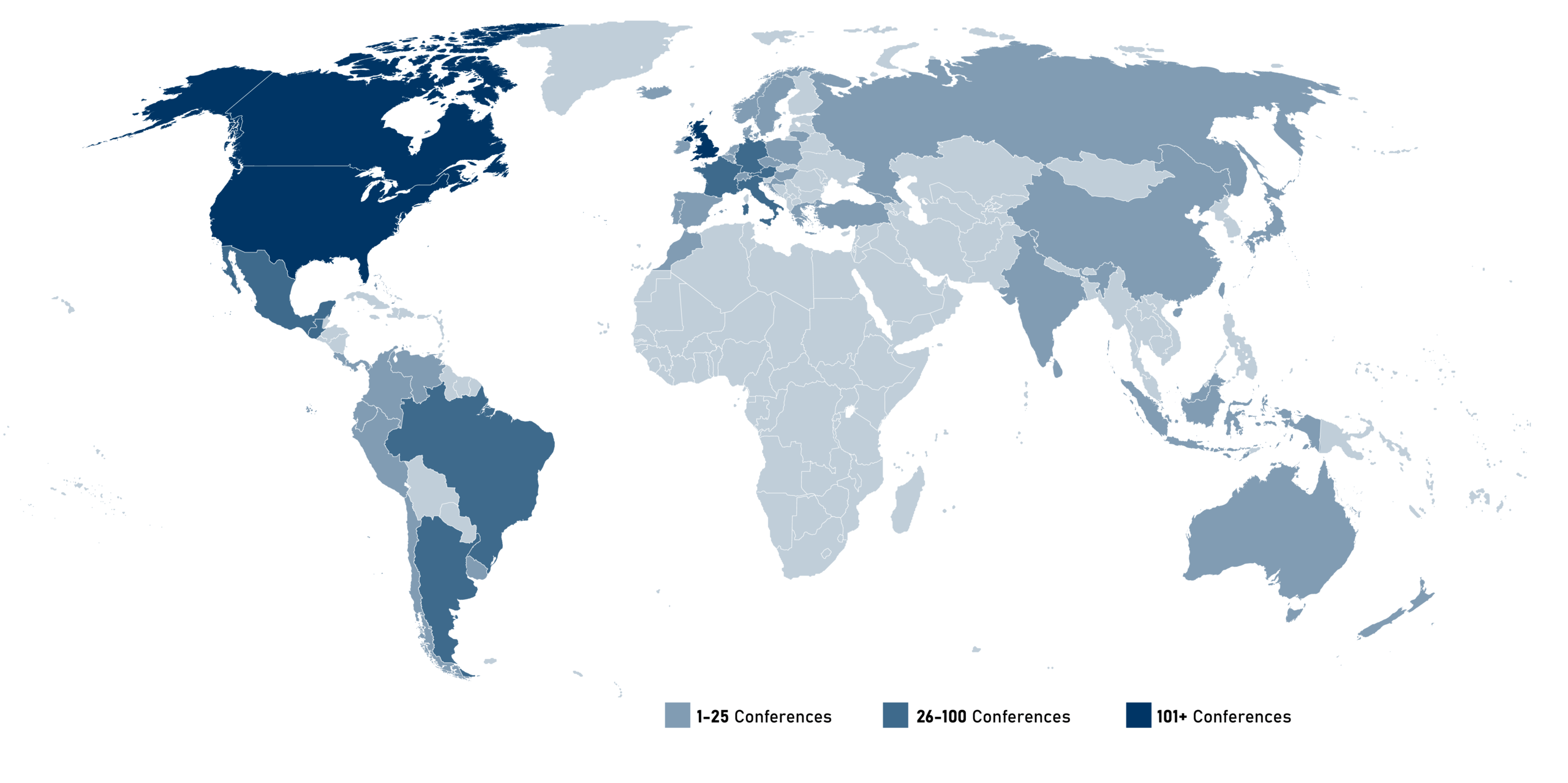Conferences
Liberty Fund has held more than 4,000 conferences around the world based on the educational philosophy of our founder, Pierre Goodrich. These small, socratic-style conferences focus on themes of liberty and responsibility in economics, history, law, political thought, literature, philosophy, religion, the fine arts, and the natural sciences.

Conversations Worth Having
Liberty Fund conferences reflect Pierre Goodrich’s conviction that education in a free society requires a dialogue among active minds freely engaging with ideas that shape human civilization and the free society. Our conversations are open ended. The purpose is neither to convey doctrine nor to reach consensus.
Mr. Goodrich did not believe a formula or a model could guarantee educational success. He thought of education as “something that happens within an individual,” and depends on personal desire and effort. Goodrich’s philosophy of education emphasizes reading important books and then engaging in discussions of their meaning and significance.

A Format Designed to Engage
Liberty Fund conferences are invitation-only events focused on a set of readings that serve as the basis of the conference’s discussion. After reading, reflecting, and considering an author’s ideas, conference participants are ready to come together to discuss the author’s work in a Socratic setting. As Goodrich wrote, “By conversation the reasoning process and experience of each individual will be helped by other individuals, each of whom is the product of his own pressures, experiences, habits, and thoughts.”

Discussion That Deepens Your Thinking
Liberty Fund conferences offer a unique blend of structure and freedom. Pierre Goodrich emphasized the importance of opportunities for spontaneous conversation: “sufficient time for discussion, formal and informal, should be allowed in an interval between the formal sessions.” Formal sessions are moderated by discussion leaders who “should confine themselves to a minimum activity of policing the discussion so that as much participation as possible may occur.” Goodrich’s Socratic approach presumes the radical equality of all participants. “Lecturing should be taboo either by the examiners or by individuals. It is the examiner’s right to interrupt the lecturer.” Our discussions can sometimes move in unanticipated directions, and at times allow experts to learn things from comparative novices. This process challenges the notion that anyone is the final authority on a topic under discussion.
CONFERENCE TOPICS
Liberty Fund conference topics align with the areas of inquiry described by our organization’s founder. They include Economics, Education, Fine Arts, History, Law, Literature, Science & Technology, Political Theory, and Theology & Philosophy.
Global Reach

Co-Sponsored Conference Program
In 2004, Liberty Fund began partnering with other organizations to expand our discussions to their networks. Through these partnerships, over 1,000 co-sponsored conferences have been held in the United States, Canada, Latin America, and Europe.
Vernon Smith
Nobel Laureate, Chapman University

Ronna Burger
Professor of Philosophy and Economics, Tulane University

Roberto Salinas-León
Executive Director, Center for Latin America, Atlas Network

James Otteson
Professor of Economics, University of Notre Dame

